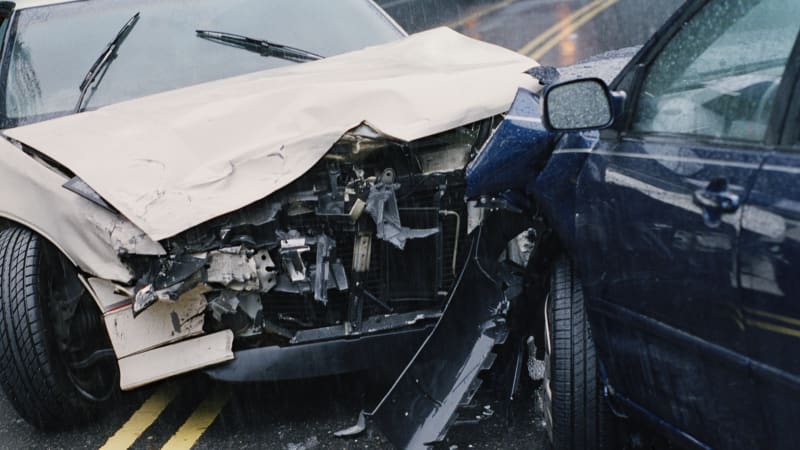
Sometimes when you read about crime, doesn’t it seem like life would be easier for the perpetrators if they simply worked legitimate jobs? The Tri-Cities Herald in Washington state reports that 23 people have been charged with faking a series of car crashes, resulting in faked injuries, in order to collect insurance payouts of nearly $1 million.
According to an 81-page, 138-count federal indictment by the U.S. attorney’s office for Eastern Washington, it was a scheme that involved no fewer than 14 faked car crashes.
How does one fake (or rather, stage) 14 car crashes? In ways both clever and not-so. First, the crashes were spaced out over a three-year period. And they often happened on remote roads, at night, to ensure there were no witnesses.
Prosecutors said that no one was aboard the “victim” vehicle in at least three of the crashes — though someone was driving the “at fault” vehicle, which leads us back to that idea that life would be easier behind a desk, counter or anything legit. Prosecutors say that in at least two crashes, perpetrators used hammers to smash car windows, and in at least one, a car seat was weighted down so the airbag would deploy.
The indictment says that after a crash, the accused “sought emergency room and medical treatment for fictitious, fabricated and exaggerated accident symptoms and injuries,” and hired personal injury attorneys to pursue their insurance claims. Prosecutors say one woman, who was the live-in girlfriend of a key conspirator, worked as a case manager at a Tri-Cities personal injury law firm and personally handled communications with insurance companies regarding the claims.
The not-so-clever parts of the alleged scheme? Some of the cars involved were crashed the very next day after they had been purchased and insured. And in one case, prosecutors say a woman accused in the scheme crashed into a vehicle driven by her own brother. These are details that would surely make an insurance company sit up and take notice.
One crash involved six people claiming injuries, which resulted in payouts of nearly $390,000. Another crash brought in $81,000.
The 23 people charged include four married couples, three sets of siblings and a father and son. They’re from the Tri-Cities, and from California, Michigan, Nevada and British Columbia. Four of those charged have not been located and are considered fugitives.
One of the defendants faces 64 felony charges. Charges for the 23 people span quite a range: mail fraud; wire fraud; conspiracy to commit mail fraud and wire fraud; conspiracy to commit health care fraud; tampering with a witness; attempted tampering with evidence; conspiracy to obstruct an official proceeding; and making false statements within jurisdiction of executive branch.
One defendant was not charged in the crashes. Instead, prosecutors say, he’s among those who are facing charges over what came after. Attempts to thwart the investigation, the feds say, included threats of physical violence, lying to the FBI, and making a false claim that an FBI agent had solicited a $22,000 bribe to make the case go away.
In all, prosecutors say the scheme from start to finish netted $962,300.
Which brings us back to our original crime-doesn’t-pay premise — or at least, it doesn’t pay well. If 23 people had earned a total of $962,300 working legit jobs over three years, each person’s salary would have been just under $14,000 per year. The scheme being alleged here paid less than working at McDonald’s.
For more details, check out the report in the Tri-Cities Herald.
